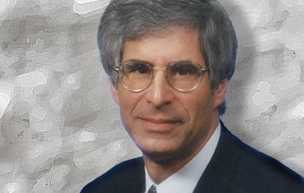It’s a mystery to me why there’s anyone left still who wants to be a public school teacher.
The profession, once prized for the unique opportunity it offered to “make a difference” by helping shape the lives of youngsters, has become a real minefield in America’s COVID-19 and gun violence epidemics and a virtual minefield in its culture wars.
The result is that a lot more teachers are leaving the field and fewer thinking of entering it.
Teaching was never a highly paid profession, and that’s still the case. According to salary.com, the average teacher salary in Maine is $53,733, with a range varying between $44,937 and $65,947 depending upon a school district’s collective bargaining agreement and a teacher’s years on the job and advanced degrees.
To qualify for compensation not much greater than that of an Amazon warehouse worker, entry level teachers must have at least a bachelor’s degree, complete a teacher preparation program, pass a Praxis standardized test and go through fingerprinting and a criminal background check.
The low pay, coupled with student behavioral issues, lack of parental respect, the demands of individualized education, rapid shifts towards digital instruction, and the increasingly heavy burden of record-keeping, meetings and standardized testing, was exacerbating teacher burnout even before the pandemic. But COVID-19 accelerated the trend.
Prior to COVID about 8% of the teacher workforce left public education nationwide each year. In addition, a study released in March by the American Association of Colleges for Teacher Education found that, in the decade bracketed by the 2008-09 and 2018-19 academic years, the number of people completing a teacher-education program declined by almost a third.
Now, according to a National Education Association (NEA) survey of its nearly 3 million members conducted in January 2022, 55% of respondents say they’re “more likely to leave or retire from education sooner than planned because of the pandemic.”
The public health and educational challenges facing teachers during the height of COVID-19 have been well publicized. Less so, the psychological stress they have suffered from the pandemic, threat of school gun violence and increasing intrusion of ideological and religious extremism into the classroom.
Rand Corporation’s 2021 State of the U.S. Teacher Survey reported that a “much higher proportion of teachers reported frequent job-related stress and symptoms of depression than the general adult population.”
The NEA survey found that stress from the pandemic and unprecedented staff shortages had left the vast majority of educators feeling burned out “with 67% reporting it as a very serious issue and 90% a very serious or somewhat serious issue.”
The May 24 mass shooting at an elementary school in Uvalde, Texas, is just the latest in a string of deadly episodes that have left teachers throughout the country feeling vulnerable and anxious about their own safety and that of their students.
Although major attacks — like Columbine High School in Colorado in 1999 (13 killed), Sandy Hook Elementary School in Connecticut in 2012 (26 killed), Marjorie Stoneham Douglas High School in Florida in 2018 (17 killed) and Uvalde’s Robb Elementary School (21 killed) — have gotten the most attention, there have been more than 900 school shootings just in the past 10 years.
A number of preventative measures have been introduced in various school districts, such as restricting building entry, employing more school police and conducting active shooter drills. But schools still remain a soft target, and one wonders whether efforts to harden them are causing even more psychic harm. Today’s active shooter drills, for instance, are probably as unnerving to participants as the nuclear bomb drills of the 1950s, when students were told to shelter under their desks.
The final insult to the teaching profession comes in the form of what some commentators have labeled “White Christian Nationalism” — a toxic brew of white supremacy, intolerant fundamentalist religiosity and America-First chauvinism that is now muscling its way into the classroom.
A recent article in the Maine Sunday Telegram noted that “over the course of the school year, educators have faced criticism over reading lists, classroom posters, curriculum materials and discussion topics. And the clashes have intensified since the state Republican Party adopted a platform in April calling for a ban on critical race theory and discussion of gender in public school classrooms.”
From mask mandates to sex and gender education to the history of slavery, segregation and racism, these culture warriors are trying to reshape education in a way unseen since 1925, when, in the infamous Scopes “monkey” trial, a Tennessee high school science and math teacher was criminally prosecuted for teaching his students about Darwin’s theory of evolution.
Never mind that masking and sex education are important public health measures that can prevent illness, save lives and reduce teen pregnancies. Never mind that scientific research suggests that gender “preference” is not a lifestyle choice but the biological result of prenatal exposure to high levels of testosterone. Never mind that slavery, segregation and systemic racism are fulsomely documented in both the historical record and statistical studies and that the teaching of tolerance and compassion for all humankind is the best antidote to hateful bigotry.
If any part of a school’s curriculum offends the hard-core beliefs and taken-no-prisoners attitude of White Christian Nationalism’s adherents, it’s got to go and with it any teacher who doesn’t knuckle under.
Small wonder then that teachers already in the profession are rethinking their career futures, while bright, idealistic college students are looking elsewhere for future careers.
To quote the signature punch line of the late comedian Rodney Dangerfield, “They just don’t get no respect.”
Elliott Epstein is a trial lawyer with Andrucki & King in Lewiston. His Rearview Mirror column, which has appeared in the Sun Journal for 16 years, analyzes current events in an historical context. He is also the author of “Lucifer’s Child,” a book about the notorious 1984 child murder of Angela Palmer. He may be contacted at epsteinel@yahoo.com
Send questions/comments to the editors.



Comments are no longer available on this story